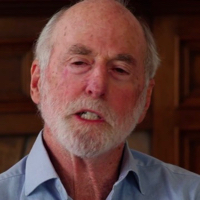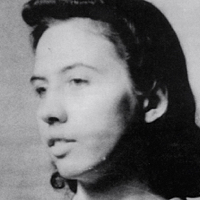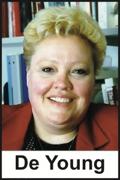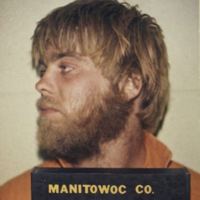Rascals case in brief
In the beginning, in 1989, more than 90 children at the Little Rascals Day Care Center in Edenton, North Carolina, accused a total of 20 adults with 429 instances of sexual abuse over a three-year period. It may have all begun with one parent’s complaint about punishment given her child.
Among the alleged perpetrators: the sheriff and mayor. But prosecutors would charge only Robin Byrum, Darlene Harris, Elizabeth “Betsy” Kelly, Robert “Bob” Kelly, Willard Scott Privott, Shelley Stone and Dawn Wilson – the Edenton 7.
Along with sodomy and beatings, allegations included a baby killed with a handgun, a child being hung upside down from a tree and being set on fire and countless other fantastic incidents involving spaceships, hot air balloons, pirate ships and trained sharks.
By the time prosecutors dropped the last charges in 1997, Little Rascals had become North Carolina’s longest and most costly criminal trial. Prosecutors kept defendants jailed in hopes at least one would turn against their supposed co-conspirators. Remarkably, none did. Another shameful record: Five defendants had to wait longer to face their accusers in court than anyone else in North Carolina history.
Between 1991 and 1997, Ofra Bikel produced three extraordinary episodes on the Little Rascals case for the PBS series “Frontline.” Although “Innocence Lost” did not deter prosecutors, it exposed their tactics and fostered nationwide skepticism and dismay.
With each passing year, the absurdity of the Little Rascals charges has become more obvious. But no admission of error has ever come from prosecutors, police, interviewers or parents. This site is devoted to the issues raised by this case.
On Facebook
Click for earlier Facebook posts archived on this site
Click to go to
Today’s random selection from the Little Rascals Day Care archives….
Click for earlier Facebook posts archived on this site
Click to go to
Today’s random selection from the Little Rascals Day Care archives….
Child-witnesses, now in their 30s, reject call to speak up

YouTube
Dr. Lee Coleman
July 7, 2019
For those seeking to understand the Little Rascals Day Care case one particularly intriguing question remains: How do the former child-witnesses, now well into their 30s, look back at their central role?
Do they believe today that their testimony was accurate? Or have they come to realize that those bizarre sexual accusations – as well as the accounts of sharks, spaceships and burning babies – were products of sheer fantasy? And that they had been relentlessly manipulated by the prosecution’s therapists?
Last month I sent letters to the Little Rascals witnesses in hopes that they would be ready to talk about their experiences. Here’s what I said:
“I apologize if this letter is unwelcome. For the past eight years I have been researching the Little Rascals Day Care case. I’m writing you because as a child you were a witness for the prosecution in Bob Kelly’s trial in 1991-92. The court records include a passage describing your testimony.
“I blog at littlerascalsdaycarecase.org, and I have worked with Duke Law School to build an archive on the case. My aim is to persuade the State of North Carolina to issue the Edenton Seven a statement of innocence similar to the one given the defendants in the Duke lacrosse case.
“I don’t know how you look back at your involvement in the case, and you are certainly under no obligation to tell me. But if you might be willing to share your recollections – however they might agree or conflict with your testimony – please contact me….”
In the decades since the “satanic ritual abuse” day care prosecutions few child-witnesses have chosen to step forward. One who did so – anonymously – looked back with sadness at the McMartin case: “It is my belief, after years of treatment centers and therapy, that nothing physical happened to me…. Mentally, well, that’s a different story. How about paying attention to the kids that were scarred from this therapy? Do you think that just because there was most likely no physical abuse that we didn’t still suffer?”
After receiving no responses to my letter, I asked Lee Coleman what he would advise those still-silent Little Rascals child-witnesses. Dr. Coleman, a Berkeley, Calif., psychiatrist, has testified in some 800 child sex-abuse cases, of which perhaps 100 involved day-care or preschool allegations. In this YouTube presentation he analyzes the McMartin Preschool case.
He replied to my request with this open letter (condensed) to the Little Rascals child-witnesses:
First, it is now recognized by all parties – prosecutors, judges, defense attorneys, academic students of memory and suggestibility in young children being interviewed for possible sexual abuse – that the methods used in Little Rascals had serious potential to influence memory, often creating a mental picture that to the child is indistinguishable from an actual memory of actual events.
This brings us to the very heart of my message to you, as you seriously consider whether justice may be served by your coming forth with what you remember of how you were interviewed and who you spoke to prior to the trial. Remember, it is not your memories of what did or didn’t happen at the school that is important, but your memories of how you were interviewed, and of who you spoke with during the time before the trial. This is the crucial time, and these are the crucial events, that any fair decision about the meaning of what you said during the trial can be best judged.
What I cannot stress enough is that if you testified to things that were not true, that was through no fault of yours, because such false testimony would be the fault of poor and suggestive interview methods, therefore neither lies, nor any indication of your sincerity as a child. If a child says things that he or she believes are true, because interview methods cause the child to accept ideas coming from interviewers rather than the child’s actual memory, then the fault lies with the interviewers and not the child.
To blame the child for misdeeds of poorly trained interviewers is, in my opinion, a kind of child abuse. I have testified about these issues hundreds of times, and most recently spoken about these issues as part of my continuing effort to bring understanding to our nation’s system of bringing justice to the area of sexual abuse of children. Such abuse, when it happens, calls for punishment of perpetrators and support of victims. When unprofessional conduct by prosecutors and their assistants causes children to be victims of suggestions that create false memories, this also calls for a better response from our society.
I thank you for taking the time to reconsider that time in your life and reconsider whether you might bring the best resolution to the efforts of Mr. Powell and others seeking justice in the Little Rascals Day Care case.
Sincerely,
Lee Coleman, MD
‘Sybil’ came clean, but psychiatrist wasn’t interested

startribune.com
Shirley Ardell Mason
“[Shirley Ardell] Mason was the real person behind the 1970s best seller ‘Sybil,’ which sold 6 million copies with its riveting account of an abused woman inhabited by 16 different personalities. Sally Field won an Emmy for her 1976 portrayal seen by 20 percent of the nation.
“In the process, Mason popularized the condition known as multiple personality disorder – a trendy 1970s diagnosis. The number of cases mushroomed from about 75 to 40,000 after ‘Sybil’ was published….
“In the trove of records kept on her case, Mason actually admitted making up the many personalities.
“ ‘I do not really have any multiple personalities,’ she wrote in a letter to her psychiatrist. ‘I do not even have a “double.” … I am all of them. I have been lying in my pretense of them.’
“Her doctor chalked it up to a defensive ploy to avoid deeper therapy….”
– From “The Minnesotan behind Sybil, one of America’s most famous psychiatric patients”
by Curt Brown in the Minneapolis Star Tribune (Feb. 25)
![]()
‘Parent-experts’ found meaning where there was none
 April 6, 2012
April 6, 2012
“Parent-experts made a specific kind of sense of their children’s behaviors and emotions by retrospectively interpreting them as sequelae of day care ritual abuse rather than as reactions to familial stress, the vicissitudes of growing up or, for that matter, the stress of the investigation and the interrogations. ….
“Parent-experts testified that they never had reason to worry about their children’s behavior until they disclosed ritual abuse. Then, to the parent-experts, the tantrums, fears and sleep disturbances that once had looked like nothing more than normal growing pains were retrospectively interpreted….”
– From “The Day Care Ritual Abuse Moral Panic” by Mary De Young (2004)
Judge Marsh McLelland’s allowing parents to testify as experts about their children’s behavior was one of the key defects pointed out by the N.C. Court of Appeals in overturning the convictions of Bob Kelly and Dawn Wilson.
Obama can’t pardon Chandler – but McCrory could
Jan. 6, 2016
“Many fans of (the hit Netflix documentary) Making a Murderer, which sheds light on questionable conduct by prosecutors and police involved in (Steven) Avery’s conviction, view the 53-year-old’s imprisonment as a miscarriage of justice and petitioned President Obama to pardon Avery. The online petitions have garnered more than 200,000 signatures.
“There’s just one problem: Avery is a state prisoner convicted under state law. The president only has the constitutional power to pardon or commute sentences in the federal system.
“Fans of Making a Murderer who believe Avery deserves clemency should consider signing this petition addressed to Wisconsin Gov. Scott Walker, which has so far been signed by just 1,033 people….”
– From “Hey, Making a Murderer Fans: Obama Can’t Pardon Steven Avery” by Leon Neyfakh at Slate (Jan. 4)
Junior Chandler’s application for gubernatorial clemency was rejected in 2014 and isn’t eligible for reconsideration until March 25, 2017.
But those who believe almost 30 years in prison is adequate punishment for a nonexistent crime may express their opinion by writing
Executive Clemency Office
4294 Mail Service Center
Raleigh NC 27699-4294
Meanwhile, the Duke Wrongful Convictions Clinic continues to investigate Chandler’s case.
![]()












0 CommentsComment on Facebook